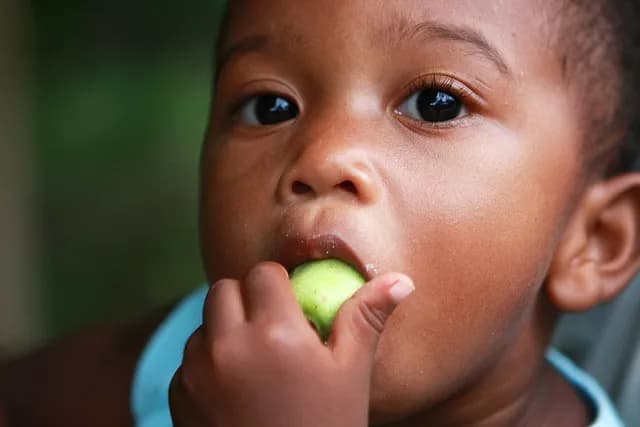
Recognizing Food Brands Puts Preschoolers At Risk For Obesity
Young children who recognize food name brands, such as Lucky Charms, M&M's and Cheetos, often eat unhealthy items that lead to their high body mass index.
The risk of this weight gain, according to a new University of Michigan study, occurs independently of other variables, including family demographics or TV viewing.
The findings also indicate that children often struggle with recalling details about food brands by misidentifying components with mascots and other fantasy characters that they are exposed to during the preschool years.
U-M researchers sought to determine if food brand recognition alone has any relevance for preschooler weight status, and if family and other variables are the primary sources of being overweight.
The sample of 247 preschoolers, whose average age was 4.5 years, were measured for BMI and completed recognition and recall indicators for a selection of 30 U.S. food brands.
The most recognized among the brands was Pepperidge Farm Goldfish (96 percent). Since there were three choices of foods to match with each brand logo, the children could get the answer right one-third of the time just by guessing. Even the least recognized brand (SpaghettiOs) was recognized 41 percent of the time, which was significantly greater than the chance rate.
The study showed that overweight children recognized 10 food items more often than healthy-weight children: M&M's, Cocoa Puffs, Keebler cookies, Pringles potato chips, Rice Krispies, Cap'n Crunch, Coca-Cola, Planter's peanuts, KFC and Hamburger Helper.
McDonald's registered the highest recall percentage (62 percent) among overweight children.
"It is interesting that despite very low recall rates for some foods, recognition rates were still high," said Kristen Harrison, U-M professor of communication studies and the study's lead author.
For example, the Keebler logo was recognized as matching with cookies (as opposed to potato chips or pretzels) by 86 percent of the kids surveyed, but only 1 percent were able to name the brand. On the other hand, recall percentages for other brands (such as McDonald's, M&M's and Pepperidge Farm Goldfish) were relatively high, but still lower than their corresponding recognition rates.
Parent BMI (higher), child race/ethnicity and child vocabulary percentile (lower) were all significantly associated with higher child BMI percentile. Controlling these variables, none of the family behavior variables significantly").
Misattribution of brands often occurred among the children. Lucky Charms were called "Cheerios with candy," M&M's were called Skittles, Coca-Cola was called Dr. Pepper', McDonald's was called "Old McDonald's," the Pringles logo was called "Mustache Guy," Quaker oatmeal "Hatman Oatmeal," and Cap'n Crunch was identified as both "Captain America" and "Chaplain Crunch."
The study's other researchers were Jessica Moorman, Mericarmen Peralta and Kally Fayhee. The findings appear in the July issue of Appetite.
Materials provided by University of Michigan. Note: Content may be edited for style and length.
Disclaimer: DoveMed is not responsible for the accuracy of the adapted version of news releases posted to DoveMed by contributing universities and institutions.
Primary Resource:
Harrison, K., Moorman, J., Peralta, M., & Fayhee, K. (2017). Food brand recognition and BMI in preschoolers. Appetite, 114, 329-337. DOI: 10.1016/j.appet.2017.03.049
Related Articles
Test Your Knowledge
Asked by users
Related Centers
Related Specialties
Related Physicians
Related Procedures
Related Resources
Join DoveHubs
and connect with fellow professionals

0 Comments
Please log in to post a comment.